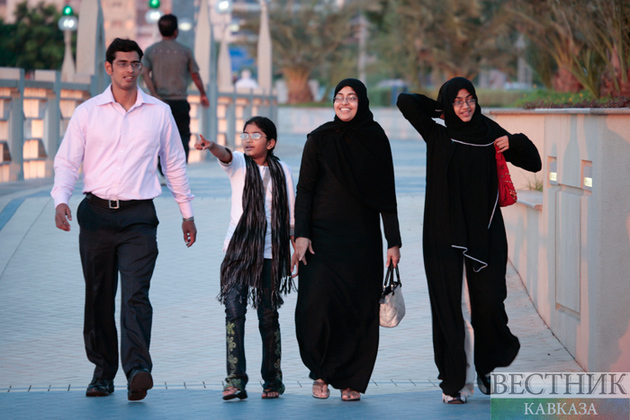Political and military tensions among regional and proxy powers across the Middle East in the wake of the Arab Spring have appeared to ease in recent years. As various states move towards rapprochement with former rivals, the regional dynamics are shifting, Middle East Eye writes.
The 2020 normalisation deals between Israel and Arab states, known as the Abraham Accords, were followed early last year by the al-Ula Declaration, which officially ended the three-and-a-half-year Saudi-led blockade of Qatar.
And the reconciliations did not end there. Talks have led to progress in relations between Abu Dhabi and Ankara, Riyadh and Ankara, Cairo and Ankara, Tel Aviv and Ankara, Abu Dhabi and Tehran, and perhaps most surprisingly, Riyadh and Tehran. The normalisation season has even spread to more unexpected areas, such as Armenia and Turkey, which holds deep symbolic meaning. Many of these developments corresponded with the election of US President Joe Biden, which put an end to the unpredictable Trump era. Biden has already decreased the American presence in the Middle East as he pivots to Asia, particularly China - and regional powers have been preparing for the post-US period.
Despite Tehran’s involvement in rapprochement efforts, Iran remains a key motivator for other states to mend fences among themselves. Israel and the UAE have historically positioned Iran as the “other”. A potential restoration of the nuclear deal, alongside US neglect of Iranian influence in the region, has worried neighbouring states and pushed them to collaborate. From Turkey’s perspective, Iran remains a threat, as pro-Iran militias have attacked Turkish positions in Iraq, while Ankara and Tehran support different sides in the Azerbaijan-Armenia dispute. Israel, which has threatened to attack Iran to prevent its development of nuclear capabilities, has simultaneously been advancing its relations with Turkey.
Raising the costs
The long, fruitless feuds among regional powers, alongside proxy conflicts, have also helped to drive the recent spate of rapprochements. Neither the pro- nor counter-revolution camps have achieved their dreams of hegemony, as ongoing protests have further increased the costs for them; all of this has helped to motivate negotiations. Conflicts cost all regional states greatly, with little economic gain. To maintain regional competition, states have cooperated with outside powers, adding more unnecessary costs through investments in defence, media, lobbying and lawsuits. This ultimately distracts regional states from focusing inwards, such as on the need to diversify Gulf economies away from oil and gas.
But there are also domestic reasons for the rapprochements. Turkey, which has complained of regional isolation, is using the reconciliation process to find a remedy to its economic problems before the next election. The government’s U-turn in relations with Abu Dhabi has been welcomed by the public, with many people holding out hope for a better economic future. Israel, meanwhile, is using reconciliation as a political tool in its domestic affairs, even as many people in the Gulf have not welcomed Arab-Israeli rapprochement, viewing it as an abandonment of the Palestinian cause.
The path forward
After years of conflicts, despite there being no clear and obvious winners, the small states of the Gulf - especially the UAE and Qatar - have emerged as regional powers that can act in equal proportion to the traditional powers, including Turkey and Saudi Arabia. The smaller states have thus proven they are a force to be reckoned with, capable of cooperating and competing in regional and global affairs. Some analysts have suggested that the recent regional thaw amounts to a “time buying” strategy or "a temporary freezing of regional conflicts”, rather than a genuine set of solutions. Yet, it is possible that at least some of these reconciliations are honest and could bear fruit.
To achieve this, regional powers must learn to avoid conflict and making direct accusations, even when their interests do not align with their neighbours. As the prestige of leaders remains an important factor in the Middle East, regional powers should follow the strategy of their European counterparts to be more diplomatic in public speeches, and thus avoid deepening strains of discord.






